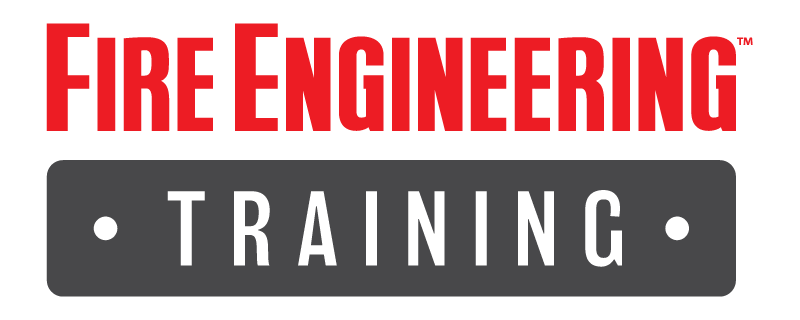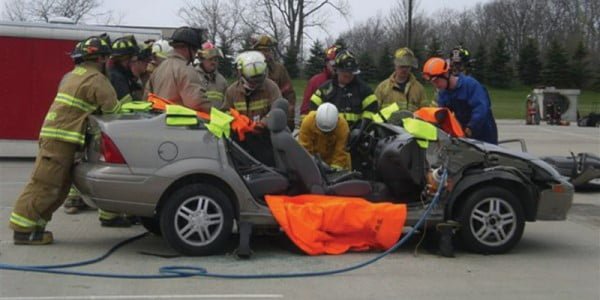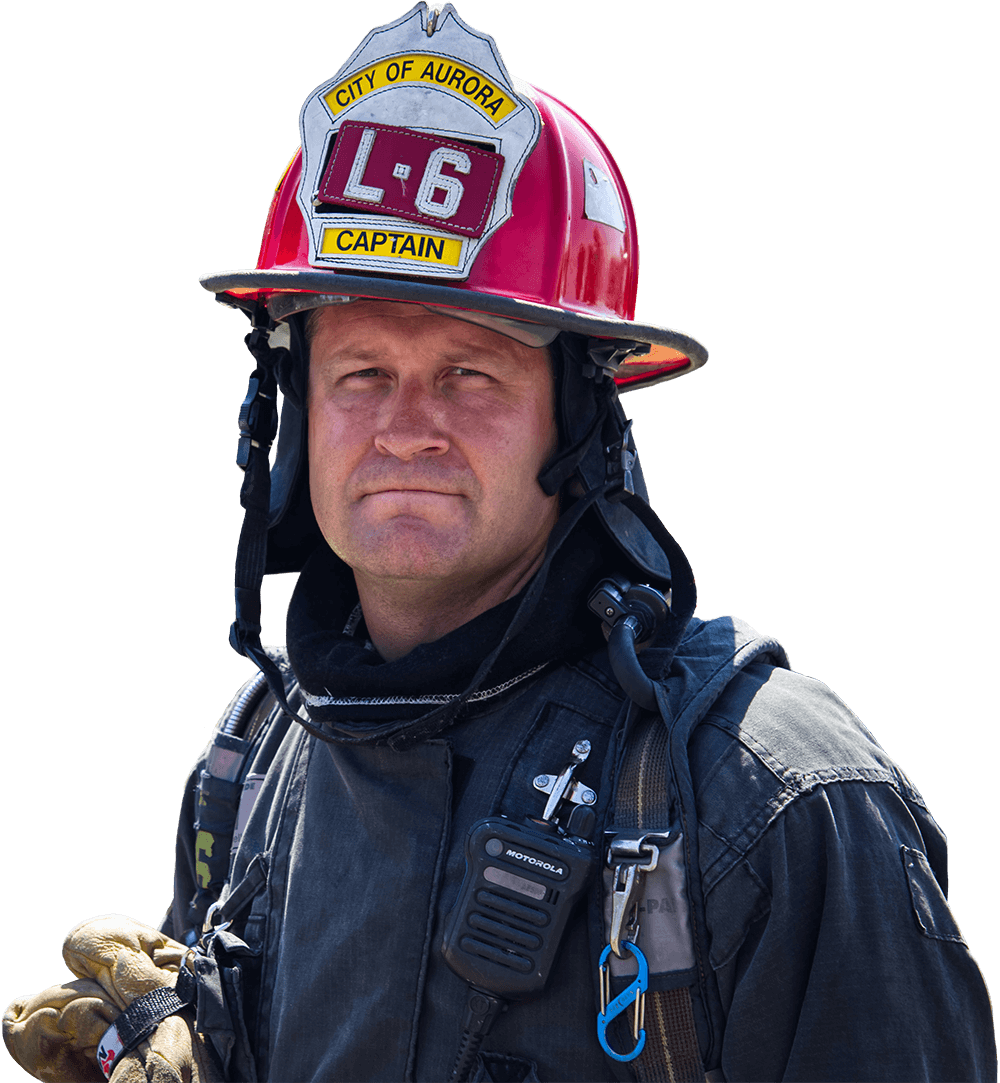Communications is an important but often overlooked aspect of fire services. Well-managed communications are essential to achieving positive outcomes and avoiding lapses that put lives and property at risk. This module builds off the Fire Fighter I knowledge base established in “Fire Department Communications.” In this module, you will learn Fire Fighter II-level information about fire department communication and reporting procedures. Content in this module is aligned with the NFPA 1001 Standards for Fire Fighter Professional Qualifications, Fire Fighter II: 5.2.1 and 5.2.2, “Fire Department Communications.”
Course Type: Full-length Course
Course Duration: 60 min
This module builds on lessons learned in the “Basic Fire Attack” module. Fire Fighter II-aligned concepts introduced here should guide you toward becoming a more experienced firefighter and advancing into the officer rank. In this module, you will learn how to decide which technique to employ as well as where and when, and how to carry them out without immediate supervision during Class B fires. Content in this module is aligned with the NFPA 1001, Standards for Fire Fighter Professional Qualifications, Fire Fighter I: 4.3.10 and 4.3.12: “Fireground Operations;” and Fire Fighter II: 5.3.1, 5.3.2, and 5.3.3: “Fire and Life Safety Initiatives, Preparedness, and Maintenance.”
Course Type: Full-length Course
Course Duration: 60 min
This module builds on lessons learned in the “Basic Fire Attack” module. Fire Fighter II-aligned concepts introduced here should guide you toward becoming a more experienced firefighter and advancing into the officer rank. In this module, you will learn how to decide which technique to employ as well as where and when, and how to carry them out without immediate supervision during commercial occupancy fires. Content in this module is aligned with the NFPA 1001, Standards for Fire Fighter Professional Qualifications, Fire Fighter I: 4.3.10 and 4.3.12: “Fireground Operations;” and Fire Fighter II: 5.3.1, 5.3.2, and 5.3.3: “Fire and Life Safety Initiatives, Preparedness, and Maintenance.”
Course Type: Full-length Course
Course Duration: 60 min
This module builds on lessons learned in the “Basic Fire Attack” module. Fire Fighter II-aligned concepts introduced here should guide you toward becoming a more experienced firefighter and advancing into the officer rank. In this module, you will learn how to decide which technique to employ as well as where and when, and how to carry them out without immediate supervision during residential occupancy fires. Content in this module is aligned with the NFPA 1001, Standards for Fire Fighter Professional Qualifications, Fire Fighter I: 4.3.10 and 4.3.12: “Fireground Operations;” and Fire Fighter II: 5.3.1, 5.3.2, and 5.3.3: “Fire and Life Safety Initiatives, Preparedness, and Maintenance.”
Course Type: Full-length Course
Course Duration: 60 min
While not every task a firefighter performs may be as dramatic as rescuing a child or being on a nozzle and knocking down a rapidly spreading fire, every task at a fire is critical to overall success. Your proficiency in carrying out your assigned tasks will directly affect the outcome of the fire attack. This module will review fighting structural vs. non-structural fires, choosing a successful fire attack method, and coordinating the tactical elements of a fire attack. Content in this module is aligned with the NFPA 1001, Standards for Fire Fighter Professional Qualifications, Fire Fighter I: 4.3.5, 4.3.8, 4.3.10, 4.3.11, 4.3.12, 4.3.19, “Fireground Operations,” and 4.5.1, “Preparedness and Maintenance.”
Course Type: Full-length Course
Course Duration: 60 min
As long as there have been buildings, firefighters have been called upon to extinguish fires within them. This module covers building construction elements firefighters need to know to conduct safe and efficient fireground operations. Content in this module is aligned with the NFPA 1001 Standards for Fire Fighter Professional Qualifications, Fire Fighter I: 4.3.4, 4.3.10, and 4.3.12; and Fire Fighter II: 5.3.2, “Fireground Operations.”
Course Type: Full-length Course
Course Duration: 60 min
Most fire departments have emergency medical technicians or paramedics on their crew to provide emergency medical services (EMS). Even if they’re not part of the EMS team, firefighters are typically first on the scene and will be expected to begin basic medical treatment until EMS arrives. This module introduces the EMS service and covers some basic skills firefighters need to begin appropriate care of sick and injured patients as well as protect themselves from injury and disease. Content in this module is aligned with the NFPA 1001, Standards for Fire Fighter Professional Qualifications, Emergency Medical Services 6.1, “General EMS requirements.”
Course Type: Full-length Course
Course Duration: 60 min
Fire behavior is a core principle to becoming a proficient firefighter. Understanding fire behavior will allow firefighters to progress with smarter and safer firefighting tactics. This module examines the science behind fire, heat, combustion, decay, and the hazards that may appear along each stage. Content in this module is aligned with the NFPA 1001 Standards for Fire Fighter Professional Qualifications, Fire Fighter I: 4.3.11 and 4.3.12, “Fireground Operations.”
Course Type: Full-length Course
Course Duration: 60 min
Even small fires endanger lives and property. Portable fire extinguishers can stop the spread of fire. However, to be effective, they must be appropriate for the fire being fought and in proper working order. This module will review the classes of fire, extinguishing agents, and how to choose the correct extinguisher for each job. We’ll also cover fire extinguisher operations, care, and maintenance. Content in this module is aligned with the NFPA 1001 Standards for Fire Fighter Professional Qualifications, Fire Fighter I: 4.3.8 and 4.3.16, “Fireground Operations.”
Course Type: Full-length Course
Course Duration: 60 min
The 1973 publication of America Burning inspired fire departments around the country to focus on fire prevention and community education as a way to stop fires before they start. In this module, you will learn about how fire departments protect and serve communities with fire prevention and fire-safety codes, information, inspections, and educational programming. Content in this module is aligned with the NFPA 1001, Standards for Fire Fighter Professional Qualifications, Fire Fighter II: 5.5.1 and 5.5.2 “Fire and Life Safety initiatives, Preparedness, and Maintenance.”
Course Type: Full-length Course
Course Duration: 60 min
Fire protection systems assist building occupants and firefighters by warning occupants, notifying fire departments, and activating a suppression system. In this module, you’ll learn how different types of detection and suppression systems work. Content in this module is aligned with the NFPA 1001 Standards for Fire Fighter Professional Qualifications, Fire Fighter II: 5.5.3, “Fire and Life Safety Initiatives, Preparedness, and Maintenance.”
Course Type: Full-length Course
Course Duration: 60 min
Communication is the cornerstone of the fire service. The communication system – between the community, dispatch, departments, and department personnel – must work even when other things do not. In this module, we’ll examine the standards and procedures for fire department communications, from initial calls to incident scenes. Content in this module is aligned with NFPA 1001 Standards for Fire Fighter Professional Qualifications, Fire Fighter I: 4.2.1, 4.2.2, 4.2.3, and 4.2.4, “Fire Department Communications.”
Course Type: Full-length Course
Course Duration: 60 min




